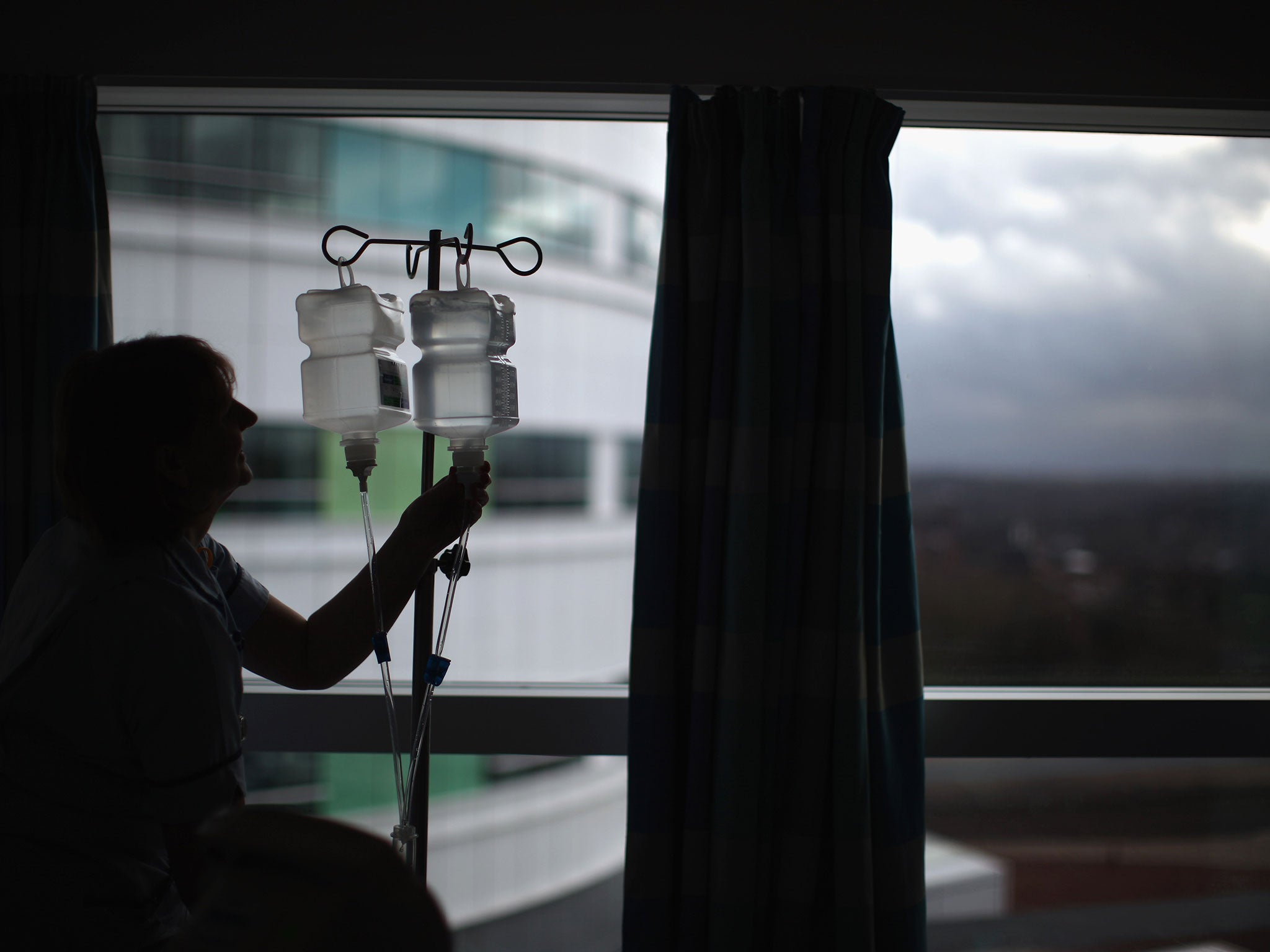Cutbacks are harming NHS cancer care, warn medics
Report warns that the 'cracks will begin so show'

Your support helps us to tell the story
From reproductive rights to climate change to Big Tech, The Independent is on the ground when the story is developing. Whether it's investigating the financials of Elon Musk's pro-Trump PAC or producing our latest documentary, 'The A Word', which shines a light on the American women fighting for reproductive rights, we know how important it is to parse out the facts from the messaging.
At such a critical moment in US history, we need reporters on the ground. Your donation allows us to keep sending journalists to speak to both sides of the story.
The Independent is trusted by Americans across the entire political spectrum. And unlike many other quality news outlets, we choose not to lock Americans out of our reporting and analysis with paywalls. We believe quality journalism should be available to everyone, paid for by those who can afford it.
Your support makes all the difference.NHS cancer services are at a “tipping point”, with frontline staff warning that quality care is already deteriorating because of a funding squeeze, according to a report surveying how the healthcare system is coping with austerity amid a huge increase in referrals.
The study, by the Health Services Management Centre at the University of Birmingham, used interviews with clinicians, commissioners, GPs, public health experts and patients. It found cancer services under mounting pressure after years of efficiency savings and the recent NHS reforms.
The report warned that the “cracks will begin so show,” and Cancer Research UK, which commissioned the study, called for urgent increased investment in NHS cancer services to help staff fighting a “brave rearguard” action to keep services viable for patients.
One expert said: “We need more funding. Instead of progressing/developing our cancer services, which are already significantly underfunded, our services are actually being cut. It is becoming impossible to deliver all the new cancer targets, and quality of care is deteriorating.”
The document calls for urgent action to increase investment in diagnostic services. Challenges facing the NHS include “a rising demand for services and a lack of capacity to respond to this demand” and “a loss of leadership capacity at national and local level” because of the removal of the National Cancer Action Team and cancer networks. The report warns of a “fragmentation of commissioning across the patient pathway”.
In 2013-14, more than 1.4 million patients in England were referred by their GP for suspected cancer, a 50 per cent increase in referrals from 2009-10. There have also been significant increases in the number of diagnostic tests being carried out and the number of patients receiving treatment for cancer following a referral from their GP.
The 62-day target for the wait between urgent referral and first treatment has dropped below the standard of 85 per cent for the first time since 2009-10.
Harpal Kumar, Cancer Research UK’s chief executive, said: “NHS cancer services have held up remarkably well... in the face of overwhelming change, increased demand, squeezed budgets and fragmented leadership. That cannot continue indefinitely. In their own words the people who have propped up these NHS services tell us... that ‘enough is enough’.”
Mike Hobday, director of policy and research at Macmillan Cancer Support, said: “These findings are consistent with Macmillan Cancer Support’s own research that cancer commissioning is in a state of utter confusion and uncertainty.”
Jane Ellison, the minister for Public Health, said: “The Government has prioritised cancer, investing three-quarters of a billion pounds over four years to improve early diagnosis and treatment, and just last month announced an extra £160m for the Cancer Drugs Fund and £6m towards a revolutionary new type of radiotherapy. Demand is growing – but survival rates are improving.”
Join our commenting forum
Join thought-provoking conversations, follow other Independent readers and see their replies
Comments